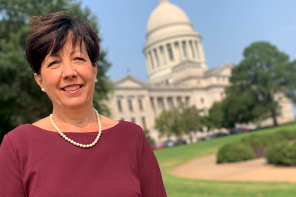Here’s an interesting story that has been going on for a long time, but now finally may have been resolved. Last Wednesday, the Ninth Circuit Court of Appeals upheld summary judgment in the case of ACSI v. Stearns.
In Aug. 2005, the Association of Christian Schools International, the Calvary Chapel Christian School in Murrieta, Calif., along with some of its students, filed suit against the University of California, basically arguing that students from its private Christian high schools were being discriminated because the university system, in its review of applicants, did not give college preparatory credit for some of their courses. The Christian schools were represented by Wendell Bird, the famous creationist lawyer from Edwards v. Aguillard.
The courses were in several fields, including science classes that used textbooks from Bob Jones University Press that included references to Bible literalism and creation “science.” One of the textbooks that the state system refused to accept as legitimate coursework: Biology: God’s Living Creation, which includes lines such as:
Historically, biology was the first major area of assault in the American classroom as evolution permeated the schools in the 1920s. Even today, evolutionism poisons biology textbooks and distracts from God’s glory in creation. high school students need to understand God’s living creation from a Biblical perspective, as God created it, and as man has learned of it.
The plaintiffs argued that by rejecting classes that use the textbooks, the university system violated the constitutional rights of Christian students applicants. Michael Behe – a Lehigh University biochemistry professor who testified in Kitzmiller v. Dover in support of intelligent design – submitted an expert report in defense of the science textbooks.
In Aug. 2008, a federal district judge granted the defendants’ motion for summary judgment and the case did not go to trial. Plaintiffs responded by filing an appeal arguing that the school system’s policy “constitutes viewpoint discrimination.”
Basically, plaintiffs argued that it’s not enough that their students are taught various fundamentalist Christian viewpoints of life’s creationism, but they say it’s unfair to treat such notions as anything but legitimate scientific education when it comes to being accepted into a rigorous college-level science program.
Interestingly, lawyers with Pepper Hamilton, including Eric Rothschild, whose cross-examination of Behe exposed ID as a vacuous fraud, co-wrote an amicus brief on behalf of the California school system. The brief disagreed with Behe’s assertion that the textbooks were valid: “Students educated with these textbooks will not be adequately prepared for science courses.”
The 9th Circuit upheld the lower court ruling for summary judgment. In its ruling, it said:
The district court correctly determined that UC’s rejections of the Calvary courses were reasonable and did not constitute viewpoint discrimination. The plaintiffs offer no facts or evidence to disturb this conclusion. UC’s rejection letters and internal meeting notes demonstrate that UC denied approval not because the courses added a religious viewpoint, but because they were either not college preparatory, lacked necessary course information or materials, or had other procedural defects which Calvary never bothered to cure.
Here’s the entire ruling.
ACSI could yet petition for certiorari to the U.S. Supreme Court, but as was explained to me by lawyers involved in the case, it’s highly unlikely that it would be accepted.




